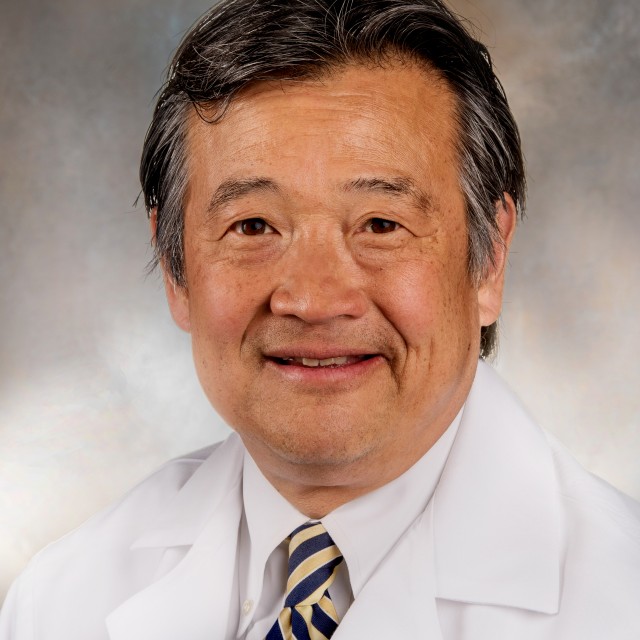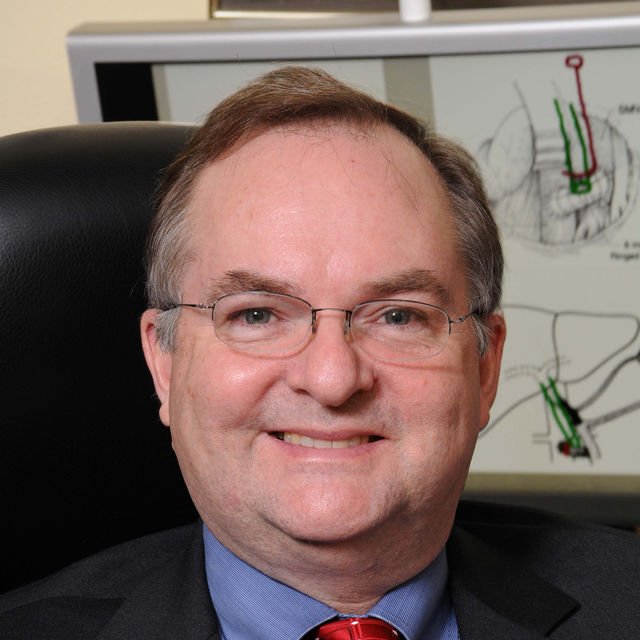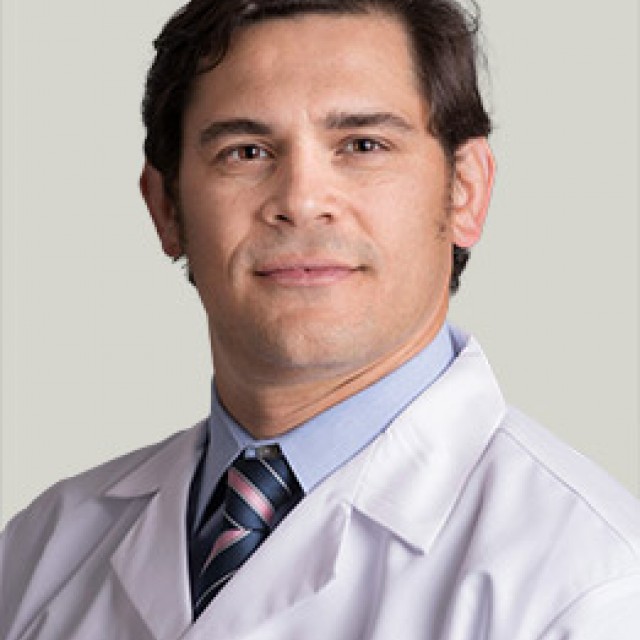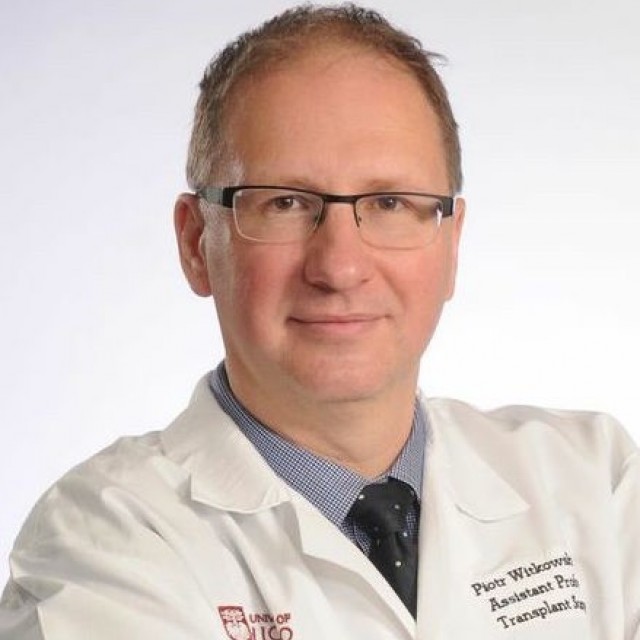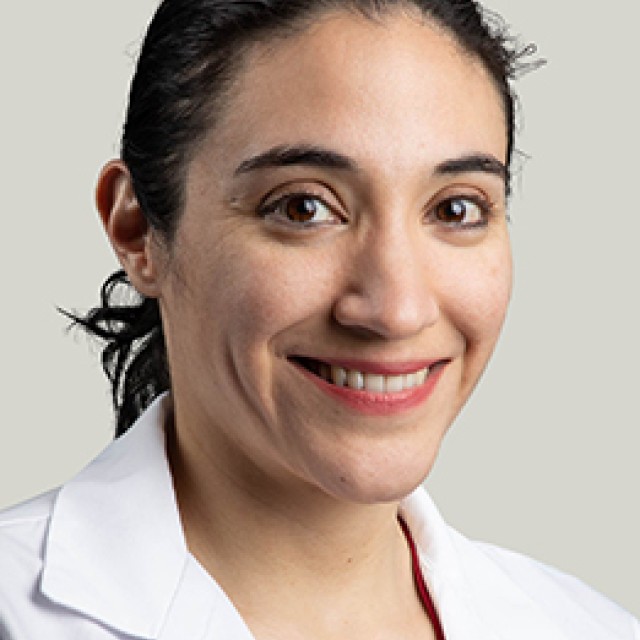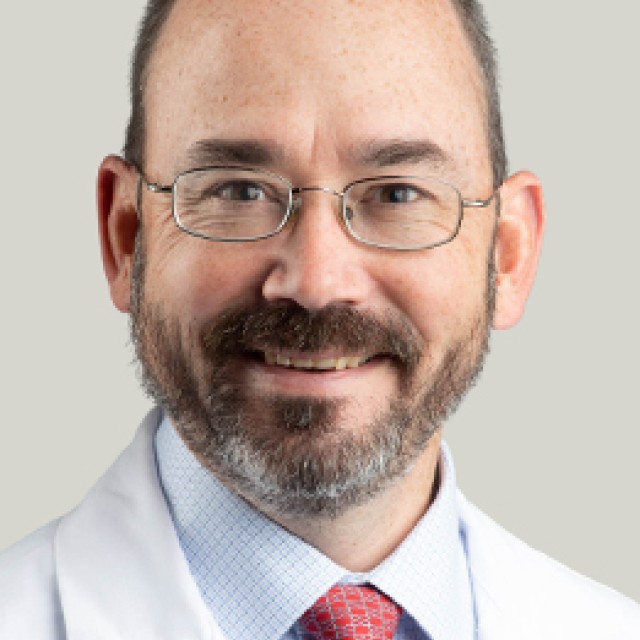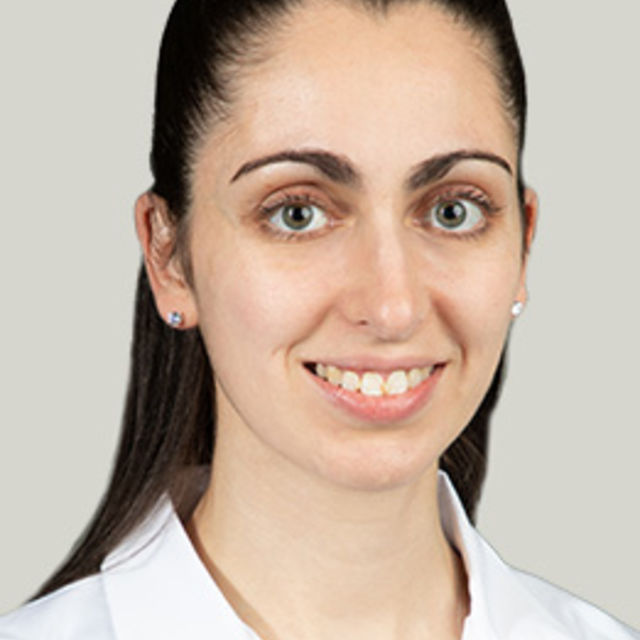Welcome to the University of Chicago Section of Transplant Surgery.
We have expertise in the areas of heart, kidney, liver, lung, and pancreas transplantation as well as complex surgical procedures involving multi-organ transplants. The University of Chicago has a long standing history of firsts in transplantation and we are continually seeking out new and creative ways to advance the science of transplantation.
We also have full unconditional accreditation from the Centers for Medicare and Medicaid Services for all of our solid organ programs.
The University of Chicago is a world leader in organ transplantation. The first human transplant was performed at our institution, as well as the first successful heart-liver-kidney transplant. Our surgeons and researchers are actively striving to not only to provide comprehensive, compassionate care, but also to stay at the forefront of transplant innovation, including through the current research of iselt transplantation for advanced Type 1 diabetes. Find out more about our clinical specialty programs.
The University of Chicago Medical Center has been a leader in diabetes research since the early 1900s. In fact, one of our researchers played a crucial role in the discovery of insulin. Now our research efforts are focused on islet cell transplantation. We have developed a clinical trial, which has been IRB-approved, involving islet cell transplantation and have received state funding to support this initiative.
Anita Chong, PhD, is the Director of the Transplant Immunology Research Center. She and her staff have been awarded several NIH grants and are studying transplant tolerance as well as the immunology of xenograft rejection. They are actively investigating the mechanism for allograft tolerance as well as the roles of antibodies in allotransplantation.
We have an onsite dedicated clinical transplant laboratory which is accredited by JCAHO and CLIA. This lab provides monitoring of all Prograf levels for transplant patients as well as T cell monitoring post transplant. This is the only laboratory in the U.S. that can perform assay levels of Leflunomide or Arava, which are currently being used for the concomitant treatment of rejection and viral infection in clinical transplantation. These assay levels are being provided to a variety of transplant programs in the country currently using this medication.
Animal Microsurgery Center (Core)
The Animal Microsurgery Center (Core) or AMC has been developed and affiliated with the Department of Surgery. This core will provide strategic leadership; serve as a liaison to academic departments, professional organizations, and administrative units of the University; manage operations, staffing, and program development of the Center; help set strategic goals; disseminate mouse and rat surgical techniques; train laboratory and clinical research personnel in surgical procedures in the rodents; and collaborate with Animal Resource Center to oversee the establishment of goals and operating procedures, practices, and guidelines for the Center. The AMC provides investigators with mouse and rat surgical models, including:
- Transplantation models, including heart (first and secondary), kidney, pancreas, small bowel, liver, skin and islet
- Ischemic model: kidney, liver and heart
- Bariatric surgical procedures, including gastric banding, vertical sleeve gastrectomy, Roux-en-Y gastic bypass, DJB, biliopancreatic diversion with duodenal switch
- Cardiovascular and metabolic models: myocardial infarction, aorta hypertention, A&V catheterizations
- Cancer and immunological models: Barrett's esophagus, tumor implantation
- General procedures: IV injection, splenectomy, nephrectomy, catheterization, blood glucose tests (GTT) and diabetic models
- Develop surgical techniques and approaches according to the requirement by investigators.
Other AMC services include:
- Microsurgical training for residency, clinical and research fellows and other staff who is interest in rodent surgical models internally and externally
- Collaboration with scientists in the study of the pathogenesis and mechanisms of obesity, insulin resistance and diabetes, and immunology
- Collaboration with the Animal Resource Care and other facilities (Cores) in development of surgical procedures
For more information, please contact:
Dengping Yin, MD, PhD
Director of Animal Microsurgery Center (Core)
5841 S. Maryland Ave, Chicago, IL 60637
SBRI J547/MC5026, Department of Surgery
(773) 702-5520
The Transplant Surgery fellowship conducts its training at the University of Chicago Medical Center, led by John Fung, MD, under the daily supervision of full-time faculty members. The fellowship program is divided into liver, kidney and pancreas components.

